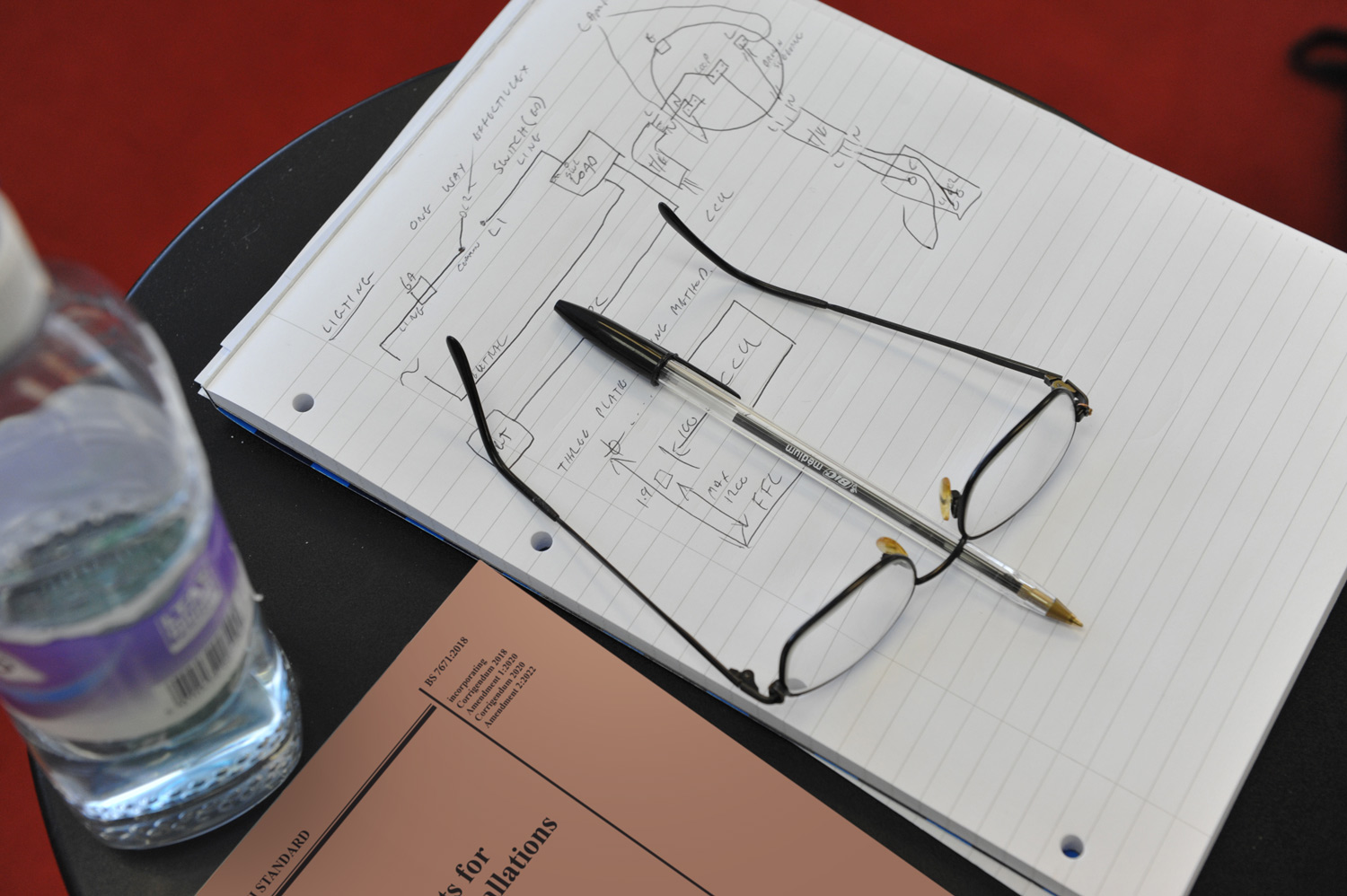As technology continues its relentless march forward, with Artificial Intelligence (AI) becoming increasingly sophisticated, there’s a growing concern about its impact on the workforce. Will AI electricians or robots eventually replace human workers entirely? Are electricians, a vital cog in the construction industry, safe from this potential automation revolution? Here’s insight from Trade Skills 4 U, the UK’s leading electrician training provider.
The Rise of Automation and Its Impact
A study by McKinsey & Company suggests that around 30% of tasks across 60% of occupations could be automated. This paints a picture of a future where robots perform a significant portion of the work currently done by humans, with manual labour jobs likely bearing the brunt of the initial impact. We’ve already seen this with the adoption of automated kiosks at fast food restaurants, eliminating the need for human interaction in order taking.
New York based company, Construction Robotics, has already created a bricklaying robot called SAM (Semi-Automated Mason) who can lay 3000 bricks a day, in comparison to builder who can lay an average of 500 bricks a day. Similarly, Australia has introduced a largescale bricklaying robot which can lay 1000 bricks an hour and could build approximately 150 homes a year. At this moment in time, there are setbacks for using these machines, SAM cannot deal with corners and the machine setup is timely which can delay the onsite process, SAM also needs human assistance to fully complete its bricklaying task.
Introducing new machinery like SAM poses a serious threat to builders working onsite, even though they require some human assistance thousands could lose their jobs once these machines are used onsite.
Modular Homes
Another potential threat to tradesmen is the increase of prefabricated homes. The UK has seen a steady growth in people opting for a prefab home as it gives them the opportunity to create and design their own home without the lengthy and complex building process, they can also save a lot of money in comparison to buying a home. The latest prefab homes are hard-wearing with the exterior being built in three to four days. This means electricians will have to adapt their job role slightly. Instead of conducting a full installation, an electrician will have to test, certify and connect the main points of the electrics within the home to the land. They may also be required to work within the factory making sure the electrics are all installed correctly. Currently, when purchasing a prefab home, the company specify the customer will have to use their employees to fully set-up home, if the popularity of these homes increases this may change in the future.
Supporters of prefab homes partially blame the shortage of skilled labour for the increase of modular houses. The rapid retirement rate of UK construction workers has meant housebuilding companies have had to embrace new building techniques. Along with the introduction of virtual construction software being integrated into the production line process means the construction industry is ready for a big change.
However, the question remains: Will AI take jobs from electricians? Will clients be calling a robot electrician in the future, not a sparky in a white van?
The Challenges of Replacing Electricians with Robots
While automation poses a challenge, completely replacing electricians with robots is unlikely in the foreseeable future. Here’s why:
- Variable Environments: Construction sites and existing buildings present a diverse array of electrical systems. Robots, in their current state, struggle to adapt to unforeseen circumstances or troubleshoot complex wiring issues.
- Dexterity and Fine Motor Skills: Electrical work involves intricate tasks like wire stripping, cable management, and equipment installation. Robots currently lack the dexterity and adaptability of human hands required for such tasks.
- Safety Considerations: Electrical work demands a high level of safety awareness. Robots, in their current form, might struggle to navigate the potential hazards of electrical environments as effectively as a trained electrician can.
The Future of Electrical Work: Collaboration Between Humans and Robots
The future of electrical work likely involves a collaborative environment between humans and robots:
- Enhanced Productivity: Robots might assist electricians with repetitive tasks, freeing them to focus on more complex problem-solving and troubleshooting.
- Data Analysis and Diagnostics: AI could analyse electrical data, identify potential problems, and guide electricians in troubleshooting.
- Skill Evolution: As technology advances, electricians may need to develop new skillsets for working with AI-powered tools and advanced electrical systems. This could involve areas like data analysis, interpretation of AI diagnostics, and interfacing with new technologies.
Embracing Change and Staying Ahead of the Curve
The speed of AI integration in the workplace remains uncertain. Public acceptance of technology and the high costs of developing and implementing robots may slow down the process.
However, electricians who embrace continuous learning and adapt their skillsets can position themselves to remain valuable players in the evolving electrical landscape.
This might involve:
- Upskilling in relevant areas: Familiarising oneself with emerging technologies like AI and data analysis tools used in the electrical industry.
- Specialisation: Focusing on specific areas within the electrical field, such as smart home integration, renewable energy systems, or electric vehicle charging infrastructure, where human expertise remains crucial.
- Maintaining a strong understanding of electrical codes and regulations: As technology evolves, ensuring compliance with the latest safety standards will remain paramount.
Electricians Can Thrive in the Age of AI
While automation presents a challenge, electricians’ roles are likely to evolve rather than disappear entirely. Their adaptability, problem-solving skills, and dexterity will remain vital assets in the foreseeable future. By staying abreast of advancements, embracing continuous learning, and adapting their skillsets, electricians can ensure their continued relevance in a world increasingly influenced by AI. They may even find themselves working alongside AI electricians and robots, leveraging technology to enhance their productivity and expertise. The future of electrical work is likely to be a blend of human ingenuity and technological innovation, and electricians who are prepared to adapt will be well-positioned to thrive in this exciting new era.
Trade Skills 4 U: Equipping You for the Future of Electrical Work
At Trade Skills 4 U, we understand the changing landscape of the electrical trade. We offer a wide range of courses designed to equip you with the skills and knowledge you need to thrive in the age of AI. Whether you’re looking to upskill in specific areas like renewable energy or smart home technology, or simply want to stay updated on the latest electrical codes and regulations, we have the resources to help you succeed.
Contact Trade Skills 4 U today to discuss your training needs and ensure you’re prepared for a bright future in the ever-evolving world of electrical services.




















